A) I
B) II
C) III
D) IV
F) B) and C)
Correct Answer

verified
Correct Answer
verified
Essay
Provide a curved arrow mechanism for the following reaction. 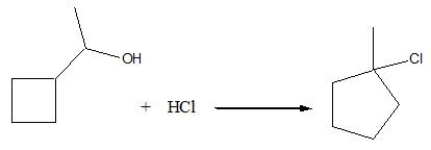
Correct Answer

verified
Correct Answer
verified
Essay
Provide the structure for 1-chloro-4-isopropylheptane.
Correct Answer

verified
Correct Answer
verified
Essay
Provide a curved arrow mechanism for the following reaction. 
Correct Answer

verified
Correct Answer
verified
Essay
Predict the major product for the following reaction and provide a curved arrow mechanism for the formation of the product. 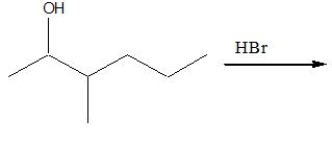
Correct Answer

verified
Correct Answer
verified
Short Answer
What is the IUPAC name for the following compound? 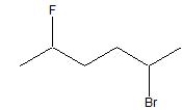
Correct Answer

verified
2-bromo-5-...View Answer
Show Answer
Correct Answer
verified
View Answer
Multiple Choice
Which of the following compounds will undergo rearrangement during solvolysis reaction?
A) 3-iodo-2-methylheptane
B) 3-iodo-5-methylheptane
C) 3-iodo-3-methylheptane
D) 3-iodoheptane
E) cis-1-iodo-3-methylcyclohexane
G) A) and B)
Correct Answer

verified
Correct Answer
verified
Essay
Predict the product and provide a curved arrow mechanism for the formation of the product. 
Correct Answer

verified
Correct Answer
verified
Multiple Choice
Provide the reagents necessary to carry out the following conversion. 
A) HN3 in water
B) HN3 in acetonitrile
C) NaN3 in water
D) NaN3 in acetonitrile
F) A) and D)
Correct Answer

verified
Correct Answer
verified
Multiple Choice
Draw the potential energy diagram for the following reaction. 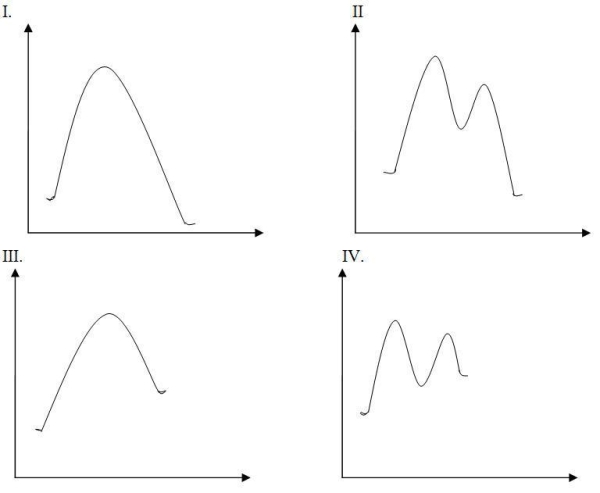
A) I
B) II
C) III
D) IV
F) A) and B)
Correct Answer

verified
Correct Answer
verified
Essay
Predict the major product(s) and provide a curved arrow mechanism for the formation of the product. 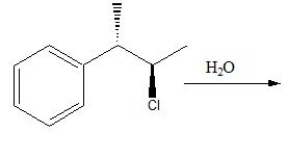
Correct Answer

verified
Correct Answer
verified
Multiple Choice
Which of the following is a tertiary alkyl halide?
A) 1-Bromo-2-methylpropane
B) 2-Bromopropane
C) 1-Bromobutane
D) 2-Bromo-2-methylpropane
F) A) and B)
Correct Answer

verified
Correct Answer
verified
Short Answer
Provide the reagents necessary to carry out the following conversion. 
Correct Answer

verified
Correct Answer
verified
Short Answer
Provide the reagents necessary to carry out the following conversion. 
Correct Answer

verified
Correct Answer
verified
Multiple Choice
What is the correct structure for (2S,5R) -2-fluoro-5-methylnonane? 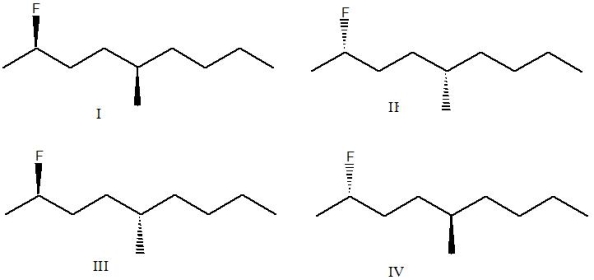
A) I
B) II
C) III
D) IV
F) C) and D)
Correct Answer

verified
Correct Answer
verified
Multiple Choice
What is the IUPAC name for the following compound? 
A) 3-Fluorobutane
B) 2-Fluorobutane
C) (S) -2-Fluorobutane
D) (R) -2-Fluorobutane
F) A) and D)
Correct Answer

verified
Correct Answer
verified
Multiple Choice
Which of the following is a weakest nucleophile in a polar protic solvent?
A) F-
B) Cl-
C) Br-
D) I-
E) All of these
G) None of the above
Correct Answer

verified
Correct Answer
verified
Essay
Provide a curved arrow mechanism for the following reaction. 
Correct Answer

verified
Correct Answer
verified
Essay
Predict the product(s) for the following reaction. 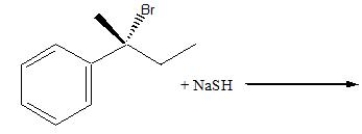
Correct Answer

verified
Correct Answer
verified
Multiple Choice
What substitution reaction mechanism is most likely for the following compound? 
A) SN1
B) SN2
C) Either SN1 or SN2
D) None of these
F) B) and C)
Correct Answer

verified
Correct Answer
verified
Showing 101 - 120 of 123
Related Exams